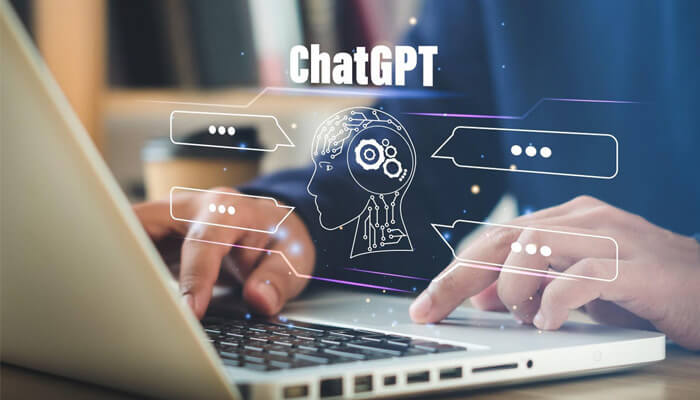A brand-new chatbot with artificial intelligence called ChatGPT has swept the internet.
This technology is the most recent illustration of how AI-based solutions are enhancing how we conduct business. There are plenty of others, but DALLE•2 and other generative visual AIs are developing especially quickly.
A variation of the GPT (Generative Pre-training Transformer) language model called ChatGPT was created expressly for the purpose of producing text that sounds like human speech in a conversational setting. It is intended to produce natural language responses in response to customer input, which could be helpful in a range of business situations where having a conversational tone like that of a human with clients or consumers is desired.
Commercial Implications of the ChatGPT
Businesses need to reevaluate how they operate, the goods and services they provide, and how AIs such as ChatGPT could improve processes and provide better customer experiences in light of this new technology.
Let’s examine some of the most significant commercial ramifications of ChatGPT and other AI-powered chatbots.
Companies that strategically use the technology can benefit greatly from the potential provided by chat-based AI tools like ChatGPT. Chat-based AI can improve human productivity by automating monotonous jobs and fostering more interesting user interactions.
Here are a few applications for tools like ChatGPT in business:
- Gathering research
- Creating marketing material
- Generating ideas
- Writing program code
- Parts of the sales process can be automated.
- Providing after-sales assistance when clients purchase products
- Giving specific directions
- Using automation to enhance and streamline processes
- Text translation between two languages
- Improving the client onboarding procedure
- Increasing consumer involvement, which results in better brand loyalty and retention
New AI-Chatbot For the Customer Services Arena
Many businesses have a lot of room to grow in the area of customer service. Companies can digitize numerous operations traditionally carried out by people and significantly reduce response times by using ChatGPT technology to produce answers for their own customer service chatbots.
Following research by Opus Research, 48% of customers do not even care whether a person or an artificial chatbot assists them with a customer support inquiry, and 35% of customers would like to see more businesses use chatbots.
In general, ChatGPT can be helpful for any circumstance where you must produce natural-sounding writing based on input data.
On the other side, if your rivals effectively use the technologies and your business does not, the advantages of AI-based chatbots could morph into risks.
Examining the Potential Risks of Chat AI
Companies have a tonne of chances to employ technologies like ChatGPT to increase profits and provide superior customer experience, but there are also some potential risks associated with this tool.
OpenAI admits the existing AI’s shortcomings, such as the ability to occasionally produce biased or inaccurate content, in the beta version of their ChatGPT program. In addition, it warns that depending on when the model was developed, the AI may only have a limited understanding of events occurring beyond 2021.
Potentially Life-Changing Technology
By automating operations that are typically done by people, systems like ChatGPT have the potential to increase productivity and efficiency in a range of corporate scenarios.
Although ChatGPT is a relatively recent technology, its capabilities are probably going to keep developing and getting better over time.
So, this can help businesses grow, and increase operational efficiency to a greater extent.



